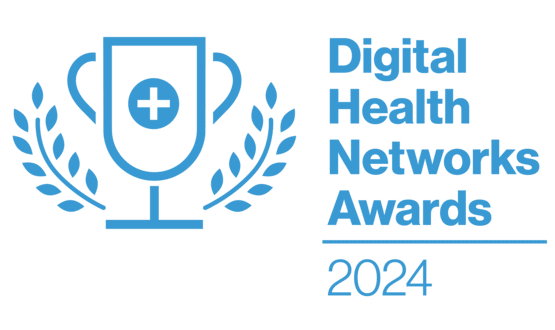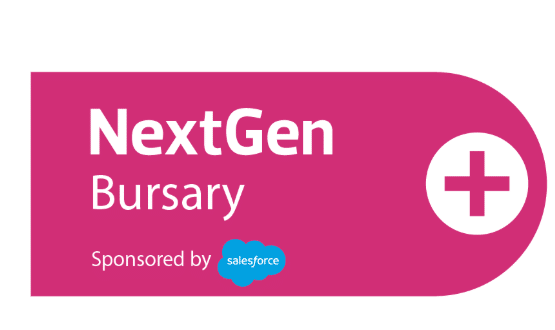Call the nurse?
- 26 June 2014

Of all the IT leadership positions in US hospitals, the newest – or maybe just the least widespread – is that of the chief nursing informatics officer, or CNIO.
In some ways, it is the nursing parallel of the chief medical informatics or (information) officer, but there can be a good deal of overlap. This is why eHealth Insider is championing chief clinical information officers or CCIOs across the NHS, regardless of whether they are doctors or nurses.
Getting the title
Even in the US, the nursing tends to be secondary to the informatics for those doing the job. "The CNIO is the senior informatics nurse guiding the implementation and optimisation of health information systems for an organisation.
“The word 'nurse' in the acronym does not necessarily mean nursing is the only discipline for which they are responsible; but rather the position is typically filled by a nurse who has experience and education in informatics," wrote Judy Murphy in the journal Nursing Economics in 2011.
Murphy, now deputy national coordinator for programs and policy in the US government's Office of the National Coordinator for Health Information Technology, was the equivalent of a CNIO at the time.
Her actual title was vice president for information services at Aurora Health Care, a major healthcare network in the state of Wisconsin.
Nurse information leaders are more likely to have the CNIO title if they are leading technology implementations or managing IT consultants, according to Linda Hodges, managing partner of the IT practice at executive search firm Witt-Kieffer.
"A true CNIO is the person who is at the table representing nursing" when organisations make strategic decisions about IT, says Hodges. "Most of these people have gotten master's [degrees] in informatics."
Acting as a liaison
The CNIO often acts as a liaison between IT and clinical staffs, which mirrors the role CMIOs played before they became widely accepted, adds Jennifer Thew, a nurse and former journalist who writes a blog for software vendor Corepoint Health about health IT and electronic health records from a clinician's viewpoint.
"They speak for bedside nurses and also understand the technology," says Thew, a telephonic triage nurse at Medcor, a company that provides clinical management services for employers looking to reduce their health expenses. (Remember, most Americans of working age receive health insurance through their employers.)
While CMIOs are pretty ubiquitous at hospitals across the US now, and are gaining in professional status, with both board accreditation and senior management positions open to them, Thew and Hodges both report that the CNIO job has not reached the same level.
"It's not like every single hospital has one at this point," Thew says. Large multi-hospital systems might have one or two CNIOs for the whole organisation, rather than a unique nursing informatics leader at each facility. "You tend to see the title more often in larger health systems, and also in academia," Hodges says.
Pushing for recognition
Even so, in certain circles, the CNIO role has a surprisingly long history, including a professional association dating back more than three decades.
CARING, the Capital Area Roundtable on Informatics in Nursing, started outside Washington, DC in 1982 as an outgrowth of the Symposium on Computer Applications in Medical Care, which itself later became the American Medical Informatics Association.
The American Nursing Informatics Association began in 1992 in California and merged with CARING in 2010; the combined group re-branded as ANIA two years later. Today, ANIA has more than 3,000 members in about three dozen countries.
CARING and the original West Coast ANIA had similar mission statements. CARING described itself as "a nursing informatics organisation advancing the delivery of quality healthcare through the integration of informatics in practice, education, administration and research."
ANIA listed the following mission: "To provide networking, education and information resources that enrich and strengthen the roles of nurses in the field of informatics. The field of nursing informatics includes domains of clinical information, education and administration decision support."
A job still to do
Over the years, Hodges has placed several CNIOs at US hospitals. "A few years ago, it seemed like it was really catching on," Hodges says. "Then there was difficulty getting organisations to embrace it." Hodges suggests that some health systems are reluctant to add another "chief" title – and accompanying executive salary.
Those that have hired CNIOs see the value in having a nursing informatics professional on the same level as other clinical and technical leaders, according to Hodges.
Witt-Kieffer recently did a CNIO search for Carolinas HealthCare System, which serves several communities in the states of North Carolina and South Carolina. According to Hodges, the CMIO, chief information officer and chief medical officer all pushed for a nursing informatics leader.
"This new role will lead the integration of clinical nursing and advancements in information technology in healthcare settings," Carolinas HealthCare said in a press release announcing the hire of Nancy Olson as the system's first CNIO.
"Chief nursing informatics officers can speak for the bedside clinicians and can understand the importance of linking that clinical knowledge with enabling technology," Carolinas HealthCare executive nurse Mary Ann Wilcox said in the same release.
Olson is being asked to standardise clinical workflows within the EHR, improve data entry for nurses, and develop an organisational governance structure for nursing informatics.
These are exactly the sort of things that make CNIOs valuable, because nursing documentation is so complex and their workflows differ from those of doctors.
"The CNIO is supposed to be looking at the 24/7 workflows," says Thew. More than any other type of clinician, hospital nurses work closely with patients at all hours of the day or night, and technology should support that, she adds.
"There's definitely a strong need for the role," Hodges says. "People that are strong in that area can basically write their own ticket."




